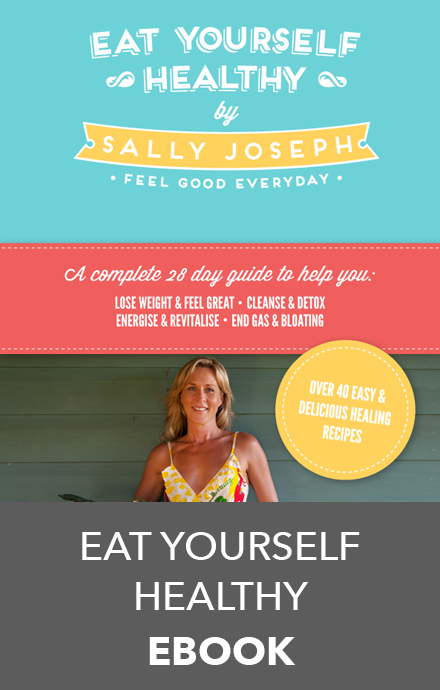
The case against cow’s dairy and whether it plays an ‘essential role in our health’, is an age old argument, causing plenty of controversy and a divide amongst health professionals. To help dispel much of the confusion surrounding cow’s dairy and the role it plays in our diet, I’ve broken down the science for you so you can be clear about the facts on this supposed ‘essential food’ and whether we really need to consume cow’s dairy for strong, healthy bones.
We’re taught from a young age that cow’s dairy will help our bones and teeth to grow strong and when we’re in our senior years – prevent our bones from cracking due to osteoporosis, but is it true that consuming cow’s dairy – which is naturally rich in calcium – does all that it claims and without it, we’ll all be fracturing our hips?
As a clinical nutritionist who’s been in private practice for 17 years, I have been recommending my patients eliminate cow’s dairy from their diet for numerous reasons, starting with the fact that we are the only mammal to consume the milk of another, and when it comes to mother nature, she typically gets it right in my view, in other words if our bodies were designed to thrive on cow’s milk, our mothers bodies wouldn’t produce breast milk.
Throughout my years in practice, I have seen cow’s dairy responsible for irritating plenty of my patients guts, and not just because they may be lactose intolerant. Dairy is mucous forming, so if you’re struggling with excess mucous production or phlegm, catarrh, sinus, congestion, asthma, abdominal cramps, eczema endometriosis or acne, consider these symptoms could very well be a sign of an underlying intolerance to the inflammatory protein found in conventional cow’s dairy, known as A1 beta-casein. This protein causes the release of histamines, responsible for digestive cramps, migraines and other inflammatory based symptoms. The inflammatory effects of A1 beta-casein, causes lymphatic congestion, reduced metabolism and consequent weight gain. The A1 beta-casein protein in conventional cow’s dairy, also causes the release of a potent neuropeptide known as casomorphin which has a negative impact on the brain and nervous system, causing fatigue, depression and behavioral disorders in children.
But the effects of cow’s dairy don’t just stop there. A 20 year study reported in the New Zealand Journal of Medicine in 2003, claimed that the consumption of cow’s milk containing the A1 beta-casein protein, was ‘significantly and positively correlated with type 1 diabetes in 20 affluent countries’ Consumption of beta-casein A1 is also associated with higher national mortality rates from ischaemic heart disease. Furthermore five cohort studies found significant associations between the consumption of cow’s dairy and the incidence of prostate cancer in men.
So what is it about cow’s dairy that doesn’t agree with human health? Immunological cross reactivity that’s what. Hah?? I hear you say, speaka da English! Put simply, this is an immune response where the proteins found in cow’s milk, (namely casein) have similarities to gluten – the protein contained in grains such as wheat, rye, kamut and spelt. It’s estimated that 50% of people with a gluten sensitivity commonly find they’re also sensitive to cow’s dairy, due to a cross reactivity process, known as ‘molecular mimicry’. So when you consume a ‘cross reactive’ food like cow’s dairy, it can irritate and inflame the immune system, as if gluten was being ingested.
But what about the claim that ‘we need dairy for calcium in order to prevent osteoporosis’?
Well, the reality is you can get plenty of dietary calcium from non cow’s dairy sources, including nuts and seeds and green leafy vegetables, dried figs, tinned salmon with bones, not to mention A2 sources of dairy that have proved to be far less inflammatory, such as sheep and goats dairy. The inflammatory effects of the histamines triggered by A1 beta-casein, impair digestion to the extent that much of the calcium contained in conventional cow’s milk, fails to be absorbed. The elimination of cow’s milk from the diet, often improves overall digestive function, resulting in improved calcium absorption from other dietary sources.
But is it true that the consumption of ‘cow’s dairy can leach calcium from your bones’ as one celebrity chef recently claimed?
The Harvard nurses study which followed more than 72,000 women for 18 years, showed no protective effect of increased milk consumption on fracture risk. When it comes to the argument that cow’s dairy is essential for the development of strong bones in children, a 2005 review published in ‘Paediatrics’, revealed that milk consumption in children does not improve bone integrity.
So what’s the cause behind increased risk of bone fracture and conditions like osteoporosis you ask? Despite what the dairy industry may tell you, osteoporosis goes well beyond calcium. A major key to maintaining healthy bones is in fact vitamin D, but the problem is few foods naturally contain vitamin D and we’re not getting enough of our natural dose of vitamin D through the sun, due to our largely indoor lifestyle and fear of the sun. Vitamin D deficiency is now a worldwide epidemic, being blamed as responsible for everything from increased rates of cancer, thyroid disorders, depression, even infertility.
A deficiency in vitamin D leaches calcium from muscle and bones, increasing the risk of fracture and osteoporosis. But can too much calcium be bad for us? Well the answer is ‘yes’, because calcium is involved in a very close relationship with another mineral, magnesium. 300 enzyme systems are dependent on the presence of magnesium, and magnesium has no less than 3,751 binding sites on human proteins. Magnesium is the second most prevalent mineral in the body after calcium, so the balance between these two minerals is essential for regulating intracellular levels. Problem is, most of us are in fact getting enough calcium in our diet, but we’re deficient in the synergistic nutrients – magnesium and vitamin D. Too much calcium without the correct balance of magnesium, can even lead to a heart attack, because calcium causes muscles to contract and magnesium causes them to relax, so when you have too much calcium and not enough magnesium – muscles spasm – and this can include the heart which is also a muscle.
The ratio of calcium to magnesium in our evolutionary diet was 1-to-1.11, but nowadays, the dietary calcium-to-magnesium ratio, averages about 3.5-to-1 and this can largely be put down to our high intake our cow’s dairy.
Many studies have indicated that higher magnesium intake is associated with a higher bone mineral density in both men and women. The transport of calcium across the plasma membrane requires the presence of Magnesium, so in the case of a magnesium deficiency (the biggest mineral deficiency suffered in the western world), problems start to occur with regards to the calcium being inappropriately deposited within the body.
But it’s not just magnesium and vitamin D that prevent the risk of osteoporosis, studies have also revealed that adequate intake of lesser known vitamin K2, significantly reduces the risk of hip fracture. Vitamin K2 also works to keep calcium in its appropriate place.
If you’re deficient in vitamin K2 , adding lots of calcium to your diet, or supplementation with calcium in isolation, or supplementing with high doses of vitamin D, without sufficient amounts of K2 and magnesium, can lead to calcium being deposited abnormally in soft tissue, causing it to harden – a process known as calcification. This can spell trouble for your heart in particular!
So in a nut shell, calcium, magnesium, vitamin K2, and vitamin D, all work synergistically with each other, so it’s essential that they’re carefully balanced, not only for the maintenance of healthy bones, but for the health of all the other body systems – pretty important stuff!
Thyroid conditions can also increase your risk of osteoporosis. Untreated hyperthyroidism (overactive thyroid), accelerates bone resorption and over time can lead to osteoporosis. In cases of hypothyroidism – an underactive thyroid – taking too much thyroid hormone for too long (eg: thyroxine – the common thyroid hormone used to treat underactive thyroid), can also cause bone loss, resulting in osteoporosis.
So as you can see, the real cause of osteoporosis lies in the imbalance between vitamins K and D and the minerals, calcium and magnesium, which is why it is essential to maintain a healthy balance and not overdo the dietary calcium, especially from cow’s dairy, which many of us tend to, whilst being deficient in magnesium, D and K.
For additional reading on the negative effects of dairy on our health, check out Professor Keith Woodford’s book Devil in the Milk: Illness, Health, and the Politics of A1 and A2 Milk.
For a comprehensive guide to overhaul your digestive health and heal your health problems through repairing your gut, check out my book, Love Your Gut, which also includes 106 delicious gut friendly recipes and meal plans.
All Rights Reserved Sally Joseph 2017
Stay in the Loop! - Receive FREE
Health & Lifestyle Tips
Delicious Healthy Recipes
Educational & Recipe Videos








